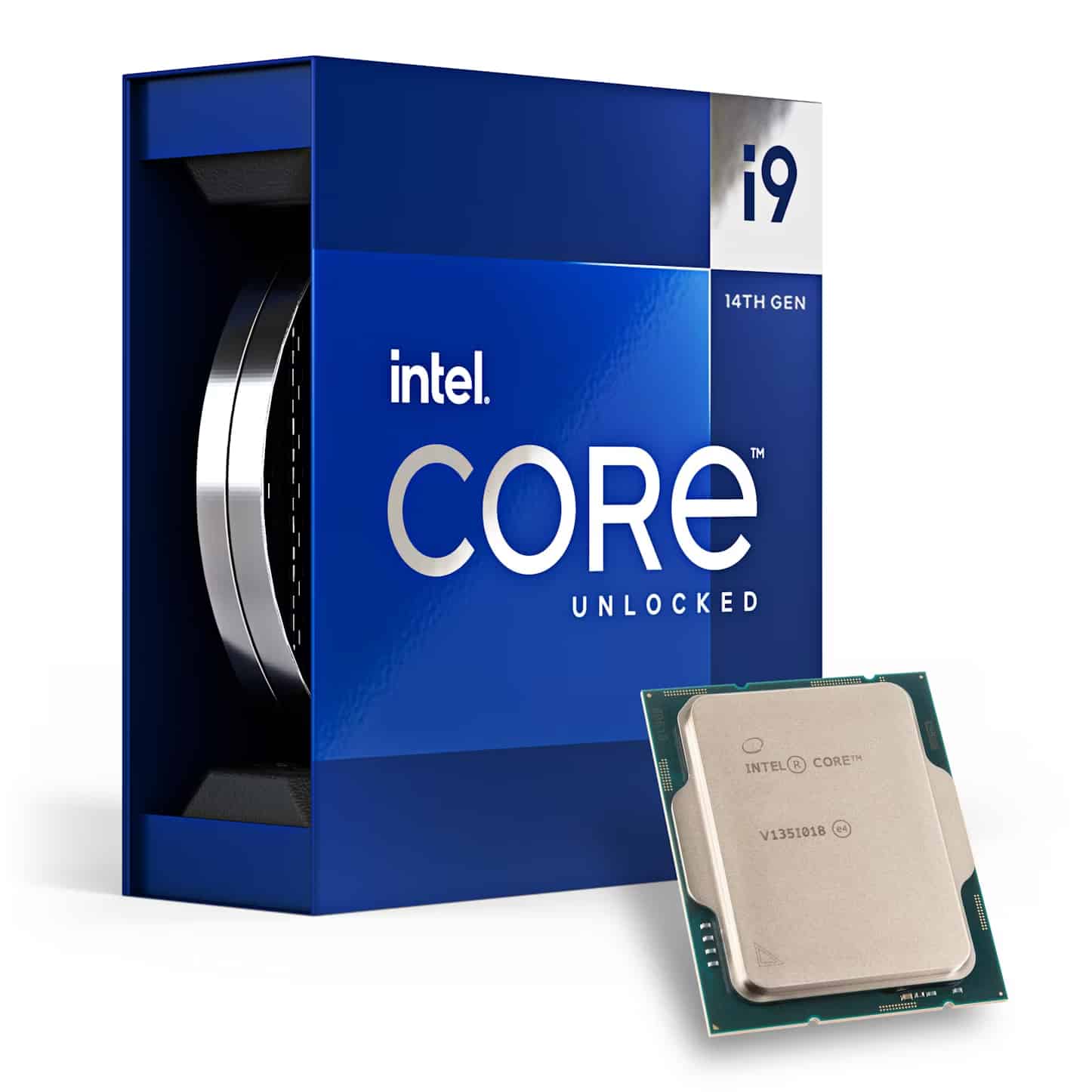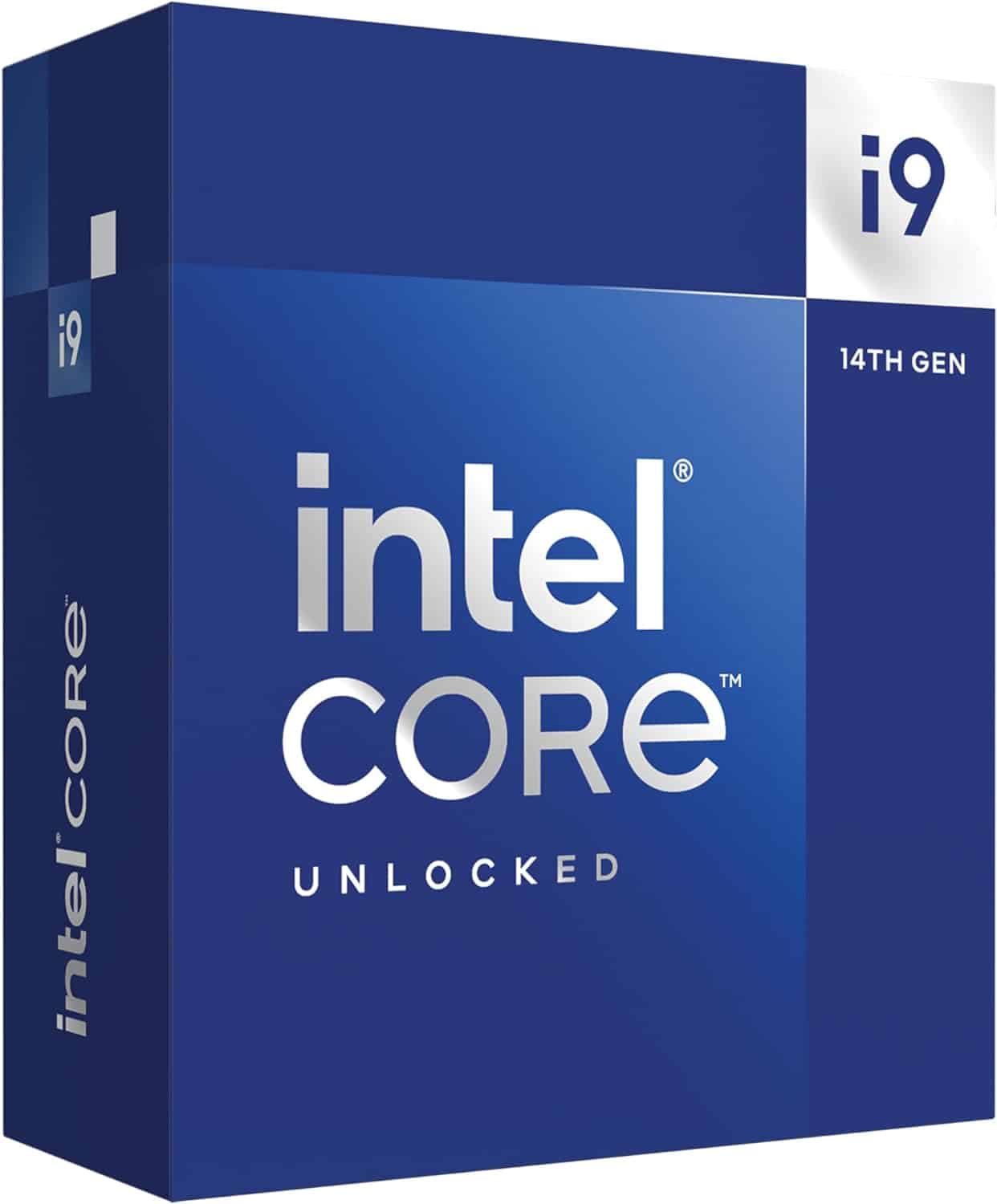Core i9-14900KS vs Core i9-14900K – what can you expect?

Table of Contents
In this article, we take a look at some of the Core i9-14900KS’s specs, performance details, and potential price ranges, to see how it compares to its predecessor the the Core i9-14900K. Join us as we compare the Core i9-14900KS vs Core i9-14900K, to see which processor is right for your setup.
Intel is ready to keep grabbing market share, this time with the 14900KS, an overclocked variant of the 14900K. The Core i9-14900KS is expected to boost a native turbo clock speed of 6.2 GHz, 200MHz more than the refreshed Core i9-14900K, 6 GHz. This article will shed light on what you can expect from this boosted high-end CPU. Let’s jump right in!
Prime Day is finally here! Find all the biggest tech and PC deals below.
- Sapphire 11348-03-20G Pulse AMD Radeon™ RX 9070 XT Was $779 Now $739
- AMD Ryzen 7 7800X3D 8-Core, 16-Thread Desktop Processor Was $449 Now $341
- ASUS RTX™ 5060 OC Edition Graphics Card Was $379 Now $339
- LG 77-Inch Class OLED evo AI 4K C5 Series Smart TV Was $3,696 Now $2,796
- Intel® Core™ i7-14700K New Gaming Desktop Was $320.99 Now $274
- Lexar 2TB NM1090 w/HeatSink SSD PCIe Gen5x4 NVMe M.2 Was $281.97 Now $214.98
- Apple Watch Series 10 GPS + Cellular 42mm case Smartwatch Was $499.99 Now $379.99
- ASUS ROG Strix G16 (2025) 16" FHD, RTX 5060 gaming laptop Was $1,499.99 Now $1,274.99
- Apple iPad mini (A17 Pro): Apple Intelligence Was $499.99 Now $379.99
*Prices and savings subject to change. Click through to get the current prices.
If the Core i9-14900K looks like it might be the CPU for you, then be sure to check out some of our other content on the product. Including our Core i9-14900K vs Core i7-14700K comparison guide, where we deep dive into each processor’s specs, performance, and price. Additionally, if you’re looking to get the most out of the i9-14900K within your PC setup, then check out our comprehensive best GPU for the i9-14900K buying guide, where we discuss which graphics card best suits the features of the i9-14900K.
Core i9-14900KS vs Core i9-14900K – specs at a glance
| Specifications | Core i9-14900KS | Core i9- 14900K |
|---|---|---|
| P / E Cores | 8 / 16 | 8 / 16 |
| Base Frequency (P) | 3.2 GHz | 3.2 GHz |
| Turbo Boost Frequency (P) | 6.2 GHz | 6.0 GHz |
| Total Threads | 32 | 32 |
| L3 Cache | 36MB | 36MB |
| TDP | 150 W | 125 W |
| Memory types | DDR5-6000DDR4-3200 | DDR5-5600DDR4-3200 |
| MSRP | $700 (?) | $589 |
Specs comparison
The main distinction between the Intel Core i9-14900KS and its predecessor, the Core i9-14900K, is their turbo clock speeds. According to speculation, the 14900KS is expected to push the envelope with a native turbo speed of 6.2 GHz, outpacing the 14900K’s 6 GHz by 200 MHz. This seemingly minor uptick in frequency is substantial in the realm of high-end CPU comparisons, where every MHz can contribute to overall performance enhancements.
This additional 200 MHz in turbo speed could have a profound impact on how the CPU handles demanding tasks and heavy workloads. Think high-resolution video editing, complex 3D rendering, or intricate scientific computations—activities that demand quick processing of large amounts of data. The enhanced speed offered by the 14900KS translates into potentially quicker rendering times, smoother video playback, and more efficient application performance during heavy computational tasks.
Thus, for professionals and enthusiasts who push their systems to the edge, the potentially incremental turbo speed of the 14900KS might provide a noticeable advantage. It represents a valuable upgrade for those looking to squeeze out every bit of performance out of their new chip, for enhanced productivity and creativity.
Performance comparison
Official details on the Intel Core i9-14900KS might still be under wraps, but leaks, especially from I_Leak_VN on X, offer a glimpse into what we might expect from this much-discussed processor. These leaks suggest the Core i9-14900KS could reach a turbo speed of 6.2GHz, which would be a notable uplift from the Core i9-14900K’s 6GHz, thanks to a bump in voltage to 1.5V (1.498V, to be exact).
The expected adjustment to 1.5V in the Core i9-14900KS is noteworthy not just for the higher clock speeds it facilitates, but also for its significant increase in power consumption. With an expected power draw of around 410 watts to achieve 6.2GHz on its performance cores (P-cores) —and a robust all-core boost of 5.9GHz at 1.413V—the 14900KS emerges as an incredibly potent chip, pushing the boundaries of computing power to new heights.
Out of the two chipsets, the Core i9-14900KS could potentially operate within a more conventional power envelope. Its architecture, designed for efficiency as well as performance, manages to deliver substantial processing capabilities without reaching the voracious power appetite of the 14900KS. This stark difference underlines the 14900KS’ position as the go-to choice for users who demand the ultimate in performance, ready to accommodate its higher power requirements against the more balanced profile of the 14900K.
Price comparison
The Core i9-14900K comes with an MSRP of $589, while the Core i9-14900KS, with its enhanced turbo clock speed and expected superior performance, is thought to be priced at approximately $700 upon its launch. This estimated price, while not officially confirmed, suggests a premium of around $111 over the 14900K. This difference reflects the anticipated improvements in speed and efficiency that the 14900KS brings to the table, catering to users who are willing to invest in the highest possible quality for their computing tasks and gaming performance.
Core i9-14900KS vs Core i9-14900K – which is better?
If the are correct then the Core i9-14900KS is poised to be Intel’s next flagship processor and certainly takes the upper hand when compared to its predecessor the Core i9-14900K. Thanks to its expected extra turbo boost clock speed, performance in demanding tasks such as high-resolution video editing, complex 3D rendering, and intensive computational simulations would be significantly enhanced, potentially making the superior of the two.
Core i9-14900KS vs Core i9- 14900K: Conclusion
In the comparison between the potentially upcoming Core i9-19400KS and the Core i9-14900K, the former arises as an attractive option for professional creators, gamers, and tech enthusiasts who demand top-tier performance from their hardware. The Core i9-14900K continues to stand as a formidable CPU, offering robust performance that meets the needs of most high-end users without stretching to the premium the 14900KS is expected to command. However, if you’re looking for the best CPU performance on the market then it may be worthwhile waiting for more information on the Core i9-14900KS to arrive. Stick with us, if you’d like to stay in the loop on all updates related to the Core i9-14900KS.



